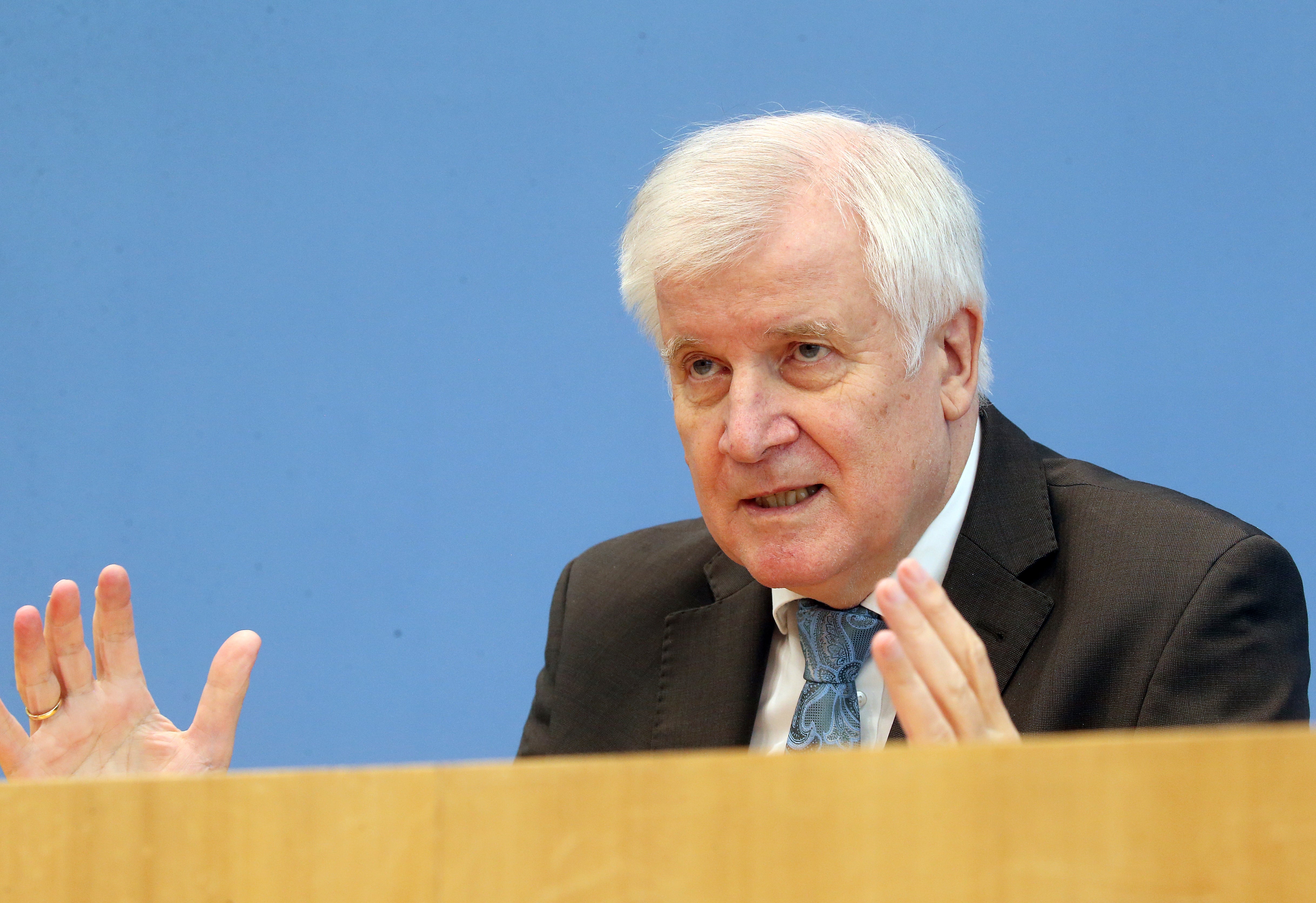Review: Few far-right cases in German security agencies
Germany’s top security official says a review has produced no evidence of structural far-right extremism in the country’s security forces and only “a small number of confirmed cases.”

Your support helps us to tell the story
From reproductive rights to climate change to Big Tech, The Independent is on the ground when the story is developing. Whether it's investigating the financials of Elon Musk's pro-Trump PAC or producing our latest documentary, 'The A Word', which shines a light on the American women fighting for reproductive rights, we know how important it is to parse out the facts from the messaging.
At such a critical moment in US history, we need reporters on the ground. Your donation allows us to keep sending journalists to speak to both sides of the story.
The Independent is trusted by Americans across the entire political spectrum. And unlike many other quality news outlets, we choose not to lock Americans out of our reporting and analysis with paywalls. We believe quality journalism should be available to everyone, paid for by those who can afford it.
Your support makes all the difference.Germany's top security official on Tuesday said a review has produced no evidence of structural far-right extremism in the country s security forces and only “a small number of confirmed cases ”
Interior Minister Horst Seehofer said the investigation did not confirm the existence of any far-right apparatus that some critics have alleged has taken root.
“However, every proven case is a disgrace," he told reporters in Berlin. "Every proven case is one case too much which tarnishes all members of the security agencies.”
Germany has seen a string of far-right scandals involving police and military in recent months.
The security agencies of the country's 16 states, which have a combined 276,000 employees, investigated 319 suspected cases of internal far-right extremism during a time period of over three years, from January 2017-March 2020.
Meantime, federal security agencies reported 58 alleged cases among their 109,000 employees during the same time period, while the military's counter intelligence agency reported 1,064 suspected cases among its 260,000-person military and civilian workforce.
Based on those initial reports, 34 people were eventually confirmed as being far-right extremists. Twenty-two were police officers, 11 were in the military, and one case was found at the country's customs authority.
Hundreds of the reported cases are still being being investigated, and in several proceedings have been undertaken to discharge the suspected individuals.
Seehofer called the findings “a first status report only" and said the next step would be a thorough analysis of the situation by the domestic intelligence agency.
Most far-right offences uncovered in the first overview were connected to expressing racist and anti-Semitic sentiment or Nazi ideology in online chat groups, he said.
“Every single case will be investigated thoroughly and pursued vigorously," Seehofer said, adding that his ministry ordered the report late last year amid concerns about growing far-right extremism, anti-Semitism and racism.
"Far-right extremism is the biggest threat our country is currently facing," Seehofer said. “”But the vast majority of members of the security agencies stands firmly behind our basic law."
In recent weeks, authorities in several German states have suspended dozens of police officers for taking part in far-right chat groups. Earlier this year, the country's defense minister disbanded one of the military's special forces units after numerous allegations of far-right extremism.
In addition to revelations of far-right extremist cases in the security agencies, the country has been rocked by several violent far-right attacks, such as the killing of 11 people of immigrant background in Hanau in February and the slaying of politician Walter Luebcke, who had supported Chancellor Angela Merkel's welcoming stance toward migrants.
On Sunday, a 26-year-old Jewish student was injured in an anti-Semitic incident outside a Hamburg synagogue — nearly a year after a heavily armed white supremacist targeted a synagogue in the eastern German city of Halle on Yom Kippur, the holiest day in Judaism. He killed a passer-by and a man at a nearby kebab stall after failing to force his way into the building.